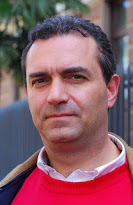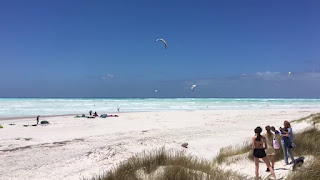NEW - Armando Picchi - footballer
Star defender captained ‘La Grande Inter’
The footballer Armando Picchi, who was captain of the Inter-Milan of the 1960s known as La Grande Inter and one of Italian football’s most accomplished players in the libero position, was born on this day in 1935 in the Tuscan port of Livorno. Under his captaincy, the Inter side managed by the Argentina-born coach Helenio Herrera won the European Cup twice as well as three Serie A titles and two Intercontinental Cups between 1963 and 1966. After retiring as a player at 34, Picchi embarked on a coaching career of his own, but after his progress with Varese and hometown club AS Calcio Livorno earned him the chance to take the helm at Juventus his life was cut tragically short in 1971, when he developed an aggressive form of cancer and died just three months after being diagnosed. Picchi grew up 30km (19 miles) south of Livorno in the coastal resort of Vada. He had the good fortune to have a brother, Leo, who was already a professional footballer when he was growing up. Leo, 14 years’ his senior, nurtured Armando’s early development and recommended him to Livorno, then playing in Serie C. Read more…
_______________________________________________________________
Valerio Evangelisti - novelist
Writer's stories of the Inquisition are bestsellers
The bestselling novelist Valerio Evangelisti, best known for his science fiction, fantasy, historical novels and horror stories, was born in Bologna on this day in 1952. He is famous in Italy for his series of novels featuring the inquisitor Nicolas Eymerich and for the Magus trilogy, all of which have been translated into many languages. Eymerich is a real historical character, a member of the order of the Dominicans and of the Spanish Inquisition who was born in 1320 in Girona, Catalonia. Evangelisti portrays him as a cruel and ruthless man who acts without mercy to protect the Catholic Church against threats of both natural and supernatural origin. Evangelisti uses the Eymerich novels to investigate the mysterious phenomena in medieval Europe that strategically influenced the great historical events of the time, creating a dark and nightmarish picture of the epoch. The Magus trilogy is a romanticized biography of the famous Middle Ages writer of prophecies, Nostradamus. The three novels, Il presagio (The Omen), L’inganno (The Deceit) and L'abisso (The Abyss) were also bestsellers in Italy. Read more…
_______________________________________________________________
Luigi de Magistris - politician
Popular and progressive Mayor of Naples
Luigi de Magistris, who has been Mayor of Naples since a shock win in the 2011 local elections, was born on this day in 1967. A former public prosecutor with a reputation for standing up against corruption and organised crime, De Magistris was the Member of the European Parliament for Southern Italy between 2009 and 2011, when he ran for Italy of Values, the centre-left party founded by another former magistrate, Antonio di Pietro. He stood in the 2011 mayoral elections in Naples with the support of minor parties on the left and the right and won in the second round of voting with 65 per cent of the vote, defeating Gianni Lettieri, the candidate for a centre right coalition led by Silvio Berlusconi’s People of Freedom party. In office, De Magistris has faced difficult times because of the city’s precarious financial situation, which at times has seen local transport suspended because fuel bills were not paid and rubbish piling up in the streets because of continuing problems with the disposal of domestic refuse that had reached a peak in 2008. De Magistris claims year-on-year improvements in refuse collection as one of his success stories. Read more…
_____________________________________________________________
Giannina Arangi-Lombardi – opera singer
Soprano’s superb voice was captured in early recordings
Soprano Giannina Arangi-Lombardi was born on this day in 1891 in Marigliano near Naples in Campania. She studied singing at the Conservatory of San Pietro a Majella in Naples and made her debut on the stage in Rome in 1920. Arangi-Lombardi sang mezzo-soprano roles for the next three years at theatres in Rome, Sicily, Parma, Florence and Naples. She then underwent further study and returned to the stage as what is known as a spinto soprano, a singer who can reach the high notes of the lyric soprano but can also achieve dramatic climaxes with her voice. Arangi-Lombardi’s second debut, this time as a soprano, was in 1923. The first time she sang the role of Aida in Verdi's opera of the same name the audience was stunned by her voice and her fame quickly spread. She appeared on stage at Teatro alla Scala in Milan for the first time in 1924 singing Elena in Boito’s Mefistofele. The orchestra for her debut performance was conducted by Arturo Toscanini. She sang regularly at La Scala until 1930 and appeared at many other opera houses in Europe as well as in South America. Read more…















